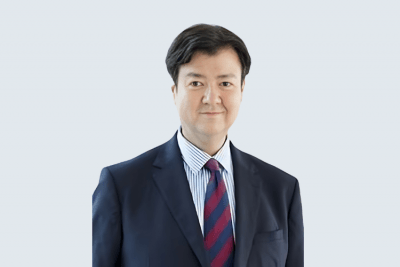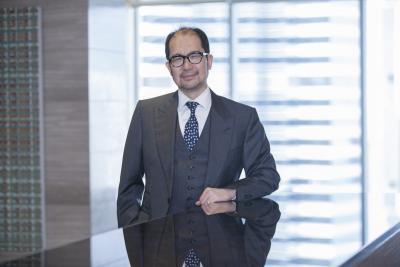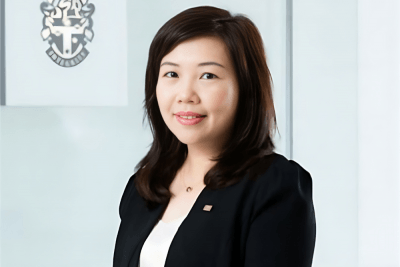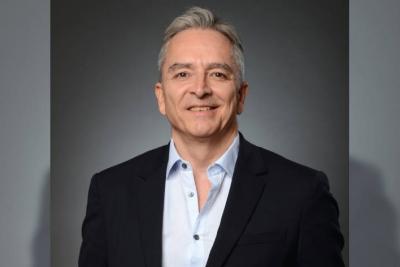Wealth Solutions & Wealth Planning
Identifying and Predicting the Key Trends in Legacy & Estate Planning & Structuring
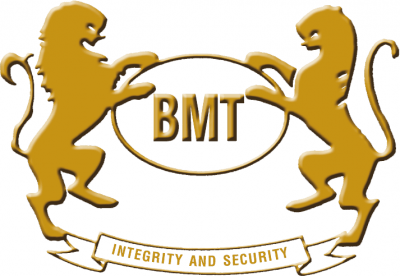
David Koay of British & Malayan Holdings
Jan 19, 2023
A Hubbis discussion event co-hosted exclusively with British and Malayan Trustees Limited
On September 13, Hubbis and our exclusive partner for the event, British and Malayan Trustees, invited wealth management experts to a behind closed doors discussion to identify and track the key trends in wealth planning and structuring in Asia. This is a distillation of some of the key observations, all presented on an off-the-record basis.
David Koay, Group CEO:
David Koay, who since 2021 has been CEO of British and Malayan Holdings, the holding company of British and Malayan Trustees, introduced the discussion and welcomed the guests.
He reported that BMH is listed on the Singapore stock exchange, and BMT has been in business for 97 years, making it probably the oldest listed trust company in Singapore. He said he joined the group a little over a year ago to help to revitalise it. “We are independent, not owned by a bank or controlled by a private equity firm, which we believe is preferred by many clients, especially the newer ranks of clients,” he reported. HNWIs usually are provided by their Private Banks, a Trust service along with their AUM accounts. Hence there would be “inconvenience” should the HNWI client decides to move their AUM account away or if the Bank decides to close down their Trust services.
“We operate only from our base in Singapore,” he added. “Why? Because we are seeing a trend to reduce participation in the older offshore jurisdictions, or in markets considered as potential tax havens, and we are seeing more onshore or mid-shore trusts, including clients re-domiciling their existing trusts. Singapore offers all the right infrastructure. Singapore is not deemed as an offshore country, nor seen as as a tax haven. In short, Singapore has the right legal & governance infrastructure and ecosystem from all viewpoints.”
Wealth planning & structuring expert explains the broader merits of building structures for the clients, and also the value to wealth managers of offering top-level advice
A leading and well-known private bank wealth & legacy planning expert explained that their mission is multi-faceted and fully comprehensive as to approach. She said they were also dedicated to the inclusiveness of family members and often business partners in the process and decisions, as well as advising on solutions that resolve multi-generational concerns and potential issues.
In Asia to date, she explained, the private bank provides this wealth and legacy planning advisory as a non-fee service, but the proposition goes hand-in-hand with the private banking relationship. She explained that sometime her team’s mandate and relationship precede the investment relationship, and sometimes follows on from it.
“On a case-by-case basis where it makes sense, we do charge, but mostly we do not,” she said. “Why? Because we are a very long-established private bank that understands and believes in transitions and very long-term relationships with clients for generations to come, beyond my time and my staff’s time at the bank. This is an area in which we can truly engage with client and their families and build trust for the bank at large.”
The family office and the multi-family office exist to encourage robust planning and smart structuring, just as much as to handle investments and curate portfolios, added the head of a multi-family office in Singapore, agreeing with those views, and noting the importance of their multi-faceted role and more holistic approach for their HNW family clients these days.
Clients who might be reluctant to pay ‘real’ fees to professionals can often be spotted at the early stages, but Asia is improving in this regard as the wealthy increasingly appreciate the value-added on offer
A trust and structuring lawyer said that they can often spot clients early on that will be difficult over fees, and accordingly tend to avoid such engagements. Asia, he said, is behind the ‘maturity’ of the European markets, where people have seen first-hand that nobody is above the reach of the authorities. “Take the high-profile case of Boris Becker, for example,” he said. “But Asia is gradually catching up, as they become more aware of the implications around global regulation.”
He explained that national tax and assets amnesty programmes such as those seen in Indonesia, for example, have helped open the door to more conversations on these matters, and more openness.
“As lawyers, we can actually play a role as the ‘bad guy’ and deliver the real truth to these clients,” he said. “People come up with all sorts of solutions they think will help mitigate tax but only create bigger problems elsewhere. We must tell them like it is. There are ramifications to every move, every decision. In that regard, I am happy to be the bad guy in that conversation.”
Another expert agreed, noting that it is essential to ‘peel the onion’ early on with and for clients to avoid tears later on.
Broaching previously culturally sensitive matters with clients in Asia is no longer off limits; conversations that must be had, should be had
An attendee highlighted the reality that nowadays in Asia, clients accept the need to have tough or sensitive conversations about their mortality, and then about wealth and estate structuring and the nitty gritty of planning and governance.
“Many clients do not really even know what exactly is involved in a trust, especially an irrevocable trust,” he observed. “There are many really difficult conversations, and many must be had around proper legacy planning. But first, one must address the realities of life that we all face, and that is easier today than it used to be in this region, especially since the pandemic hit.”
Robust and prescient planning & structuring can help avert or mitigate the potential for disputes within families and amongst beneficiaries
Another lawyer agreed, noting that her firm is also involved in disputes, or rather trying to avoid or resolve disputes, which can be immensely costly, and also incredibly corrosive for the families involved.
“When we open up about the misery some families go through when they suffer from poor planning and family disputes, clients pay us real attention,” she said. “These crises they see really focus their minds on their own plans and how they can themselves avoid such disputes in the future.”
She added that the first step is to fully understand the clients, their own family situations, their needs, their hopes and expectations, and only then start to define and refine potential structures.
To arrive at the best outcomes, it is a prerequisite to first understand the clients, their families, their needs and their expectations
“To provide the best options and advice for the clients to consider, we must build a very trusting relationship, and to some extent some of that process is without charging by the hour.,” this same guest added. “The solutions will then follow more naturally and with greater relevance and applicability. And then when we have defined and agreed those structures, the fees are communicated and cemented, and the clients understand exactly what they are paying for.”
In short, she added, there is often a lot of legwork, which is actually not recovered in legal fees. “And we also recognise that when bankers or advisors bring their clients in, they don’t want immediately to be stunned by some huge fees estimate from the lawyers from the outset. The relationships must be built, not compromised. Moreover, during the actual assignments later on, we must be careful not to go over our estimates, unless for very good reason, and then make sure that it is all clearly communicated as early on as possible.”
These are often daunting technical planning & structuring concepts and can often move clients into unfamiliar territory, so transparency, clarity and empathy are vital for all concerned
An expert noted that clients at the outset are in many cases completely bewildered by these concepts and the plethora of structures. He indicated that the conversations must start with the vision of what the clients hope to achieve, and work from there, not work from complex structures and concepts first.
“For example,” he said, “if talking about a family office, we do not start with the structure and the Singapore government incentives, we start with the objectives for the family, and later plan out a course of action that is more all-encompassing, and make sure they understand the different structures, for example a standard discretionary trust, reserve powers and so forth, and relate those to the family’s objectives, so they can see and understand the journey they are going on.”
Work backwards from the solutions, don’t work forwards from the products
The same expert also cautioned against the technical experts – lawyers such as himself – seeing everything from their perspectives, and not from the viewpoint or mindsets of the clients.
“Clients want to understand what they will achieve and how to achieve it, but not get too bogged down in technicalities, as they lose interest,” he said. “But equally, clients are more sophisticated todays, especially the younger generations in Asia, and they concentrate more on the journey and the outcomes, and fuss less over the fees. In my experience, clients today increasingly want a solution, they want real competence and professionalism to design tailored solutions that fit them ideally.”
He added that he agreed with an earlier comment that Asia-based clients are also increasingly savvy about fees. “There is no cost comparison website for what we all do,” he quipped, “but clients have their networks, and they know pretty well when they come across advisory, lawyers, trustees or other who are gouging them.”
There is a concurrent evolution taking place in the professional consultants and services community towards advisory and away from product
A guest highlighted the trend in wealth management away from product and towards advisory-led private banking. So too, in the estate and legacy structuring world, the focus must increasingly be on the missions and concepts, and less on the products.
“Clients should be advised against coming into the room, and saying they want a family office, or being offered a family office,” she said. “We need to ask them what they think a family office is. We should appreciate their worries and their exact situations and avoid immediately driving off in one direction or another. In our businesses, we also need to train our junior staff to adopt this more advisory approach to things and then we'll have better outcomes with the clients.”
Another guest concurred, adding that advisors need to understand clients first, and then slowly lead them in the direction that they want to go, providing the professional guidance and support to get them to where they want to be. “I was in a bank for 11 years, and there it was product-led, thinking about these are the products we have, then how do we fit the client into them, but in practice, it needs to be other way round to achieve the best outcomes in estate and legacy planning.”
Validation is a very important consideration for clients and trustees
An attendee explained that validation by the client is very important. He cited, for example, the arrival of the end date for a 30-year trust in Singapore this year that saw proceeds realised in the hundreds of millions, to be split amongst some 70-plus beneficiaries.
“When the settlor created this trust 30 years ago, they would have had no concept of the incredible amount of work required to liquidate the assets, which included eight major properties and blocks of blue-chips shares and other assets,” he explained. “And aside from the liquidation, there are all the compliance and tax and reporting angles to handle. Moreover, we had to be careful to be totally transparent, to be utterly objective, not to offer any beneficiary any favouritism; these are all vital elements. To me, the validation at the end of that 30-year trust was that every beneficiary is happy.”
Objectivity and transparency are essential, without them the clients can be unanchored
The same expert said that this all serves to reinforce the importance of quality advisory, objectivity and transparency. “I was a banker in my earlier career,” he said, “and the sad truth is that, for example priority banking RMs are very often product pushing for one simple reason, because they are on commission. Private bankers are paid significantly on bonus. But fiduciaries have a much longer time horizon.”
A lawyer agreed, adding that in the healthcare world, diagnosis comes first and only later the medication or surgery, or other treatments.
“We have to structure based on a real comprehension of the family and objectives,” he said. “We have many clients coming from China, and they might arrive and tell us that they want to avail themselves of the ‘13’ suite of fund and family office incentives. But I try to get them to focus on exactly what they think they are trying to achieve first, as different 13 solutions achieve different goals. Just because someone bought a Bentley does not mean they should get Bentley, but there are still many clients who think like that. Clients need to also fully understand the full ramifications of their decisions and to help achieve that, independence of advice and objectivity are essential.
He added that as a law firm handling these matters, they have all the trust templates - discretionary and non-discretionary, revocable or irrevocable – and all the corporate or fund vehicle templates, such as the single-family office, the multi-family office and so forth. “But we don't start with them, we learn about the clients and then we work out how to help them from point A to point B legitimately. So, that's our approach.”
There is also an evolution of a more comprehensive and more encompassing suite of solutions in estate and legacy structuring, and the ‘horse must come before the cart’
A guest agreed with these views and shifted the conversation slightly more directly to solutions. He noted that structuring is nowadays more comprehensive and holistic in approach, or at least should be. For example, he said trusts and other structures can nowadays be effectively combined with life insurance solutions.
“Structures are often multi-dimensional in scope in order to achieve the right goals, and that there is a general shift in focus taking place towards solution-based structures based on missions and objectives that should be identified early on, rather than creating solutions that are in reality thinly disguised efforts at selling products. There is increasingly a holistic perspective taken on the family’s wealth and longevity, with structures created on a more comprehensive and forward-looking basis than before in Asia.”
Another guest agreed and pointed to trends in Europe towards foundations and charitable structuring, whereby the beneficiaries such as the younger generations inherit what the settlor thinks they need (and very much more very often) and then family members manage the remaining sums for charitable or other positive purposes.
“This is a shift away from just distributing at a point in time and then perhaps having those beneficiaries blow what the founders had worked so hard to achieve,” he remarked. “It is more like the Warren Buffett approach.”
Another guest agreed, noting as an aside that in the US there is a lot written about issues facing privileged children who have never worked for anything in their lives, very different from the parents or grandparents who worked so hard to create the wealth. “The associated lack of focus and ensuing insecurities around their worth have created plenty of mental health issues,” he remarked.
Focus more on the NextGens and make sure that planning is inclusive
It is partly to address these sorts of issues that settlors are increasingly finding a role for the younger generations in a family investment structure or charitable project or foundation. “As a lawyer helping clients in their structuring, I see the value of inclusiveness in the dialogue and planning around these solutions, all of which can help these younger generations find esteem and worth,” he said. “And we must realise that as we try to find the right solution, we are navigating a whole fog of emotions and different agendas in the family and different generations.”
Another guest concurred, adding that part of their job is devising solutions is to have empathy with the clients and the families.
“In the years ahead, lawyers, trustees, asset managers, we all need to develop better relationships and engagement with those second and third generations. But I also have no clear idea how you learn about all that. I know where to go get an MBA, I know where to go get my LLM, I know where to go get STEP training, but as a tax attorney, I don’t’ really know where or how to develop a soul, and I am not sure I was actually born with one! But joking apart, empathy will be more and more important as we attempt to validate our services and our worth to clients.”
A banker concurred with these views, citing a client who hired her services because he felt she would be well placed and sympathetic to helping his daughter in the years ahead.
“He said that if something happened to him, he would feel good that he had put his and her affairs under my guidance, to hand hold this daughter for the future,” she said. “I consider this type of empathy and understanding to be really core to my proposition and value.”
She added that she also feels a responsibility to help the younger generations identify their skills and capabilities, and not to feel pressured to follow in the family business. “When we work with these families, we are also representing the next generation and relating the structures to them as well. That is really important.”
The final comment from the guests went to an expert who observed that wealth with no associated values can be a problem. “Working as external advisors to these families can really help them, as we are neutral, we can empathise and help guide these families towards structures that are properly aligned with the different family members and beneficiaries. And we can do so without the history and biases of family members themselves. It is actually a privilege and a pleasure dealing with these families and helping find solutions that resonate throughout.”
The final word – collective responsibility
The final comment went to David Koay, who thanked the guests and agreed wholeheartedly that the fiduciary and advisory industry must help these clients to articulate their values, produce solutions consistent with a multi-generational perspective, and help them all avoid future disputes.
And from the tone and content of the discussion that day, it does indeed appear that the estate and legacy advisors, the lawyers, trustees and other leading participants in the wealth, advisory and fiduciary businesses do indeed increasingly recognise their collective responsibility and genuinely have a collective will to help articulate the best solutions and optimal outcomes for their clients.
A Brief Note on British & Malayan Trustees
Hubbis recently published a feature article on BMT following an interview with CEO David Koay.
Please see this link: https://www.hubbis.com/article/david-koay-explains-why-singapore-is-the-perfect-base-for-british-and-malayan-trustees-expansion
More from David Koay, British & Malayan Holdings
Wealth Solutions & Wealth Planning
David Koay Explains why Singapore is the Perfect Base for British and Malayan Trustees’ Expansion
Latest Articles



